
Woman Criticizes Friend’s Husband, Isn’t Prepared To Hear The Truth About Her Own Marriage
If you ask a couple how they know they found ‘the one’, chances are they will say, “You just know.” But it’s important that we listen to our hearts and minds and consider both emotional and practical aspects before marrying anyone. What happens when someone starts questioning your choice, though?
A woman took to the AITA subreddit to share how her friend, who was experiencing marital turmoil, judged her for marrying a man with learning disabilities. The conversation turned sour when the friend said mean things about her son having dyslexia and hinted that the original poster (OP) shouldn’t have married her husband. In response, the OP defended her husband’s integrity and said that she would choose character over anything. That’s not all, Pandas. Keep scrolling to find out the full story that comes with a somewhat friendly update.
Offering unsolicited advice can have a negative impact on relationships
Image credits: Prostock-studio / envatoelements (not the actual photo)
A woman was angry at her friend for harshly judging her husband and son
Image credits: Prostock-studio / envatoelements (not the actual photo)
Image credits: Prostock-studio / envatoelements (not the actual photo)
The author tried to maintain civility for the sake of their children’s friendship
Image credits: gpointstudio / envatoelements (not the actual photo)
Image credits: Throw_awayy098
What prompts people to be judgmental at times?
Image credits: George Pak / pexels (not the actual photo)
It’s highly likely that you might have experienced criticism or judgment from family, friends, or others at some point in your life. It could be relatives making remarks about your weight or body shape during a family function or your best friend questioning your decision to pursue a career in music. Whether they were being intrusive or they meant it in a lighthearted way, such comments can make you feel unhappy.
However, it’s also possible that you are the one being judgmental. But why is it that, at times, we are critical instead of encouraging? Well, judgment often stems from a combination of individual psychology, societal influences, and interpersonal dynamics. And it can take many different forms; a person can drop subtle hints or just be harsh to your face.
According to scientific research, individuals have a built-in instinct for judgment. It’s in our nature as humans to survive and thrive. As a result, we unconsciously wind up evaluating those around us to decide whether or not it is safe to be with them.
Studies carried out at New York University and Dartmouth College reveal that our brain classifies people as trustworthy or untrustworthy before we have a chance to fully study their faces, indicating how judgmental we can be. For instance, if you’re going for a job interview, and the interviewer walks in with a straight face and doesn’t smile at you, you might assume that they are arrogant or rude.
All of us develop a subjective perspective of the world as we get older and amass unique life experiences, one that centers on our own values, beliefs, and processes of logic. Studies reveal that parents have an impact on their children’s brain development. If parents continuously criticize, ridicule, and berate their kids, chances are they will grow up with identical behavioral tendencies.
Imagine you grew up in a household where success is measured by academic achievement and career advancement. From a young age, you were taught that education and professional success were very important. If you got poor marks, your mom or dad would judge you harshly or compare you with someone who scored better. But as you grow up, you meet people from different backgrounds and walks of life. However, with your deeply ingrained beliefs, you might judge those who do not meet your standards of intelligence or ambition. Chances are, you will see them as lazy or inferior.
Also, when a person feels powerless over different parts of their life, they attempt to control or influence others in order to feel in control. For instance, if a person is going through a difficult time at work, they might feel undervalued. Because of these external factors, they might end up being judgmental about a friend who loves to be part of every office event. They might suggest that their friend not ‘waste’ so much time with their colleagues.
Putting down others is one of the most popular ways for people to feel good about themselves. We might feel superior when others don’t match up to the high standards we set. We think we are better when we compare ourselves to their lifestyles, behaviors, and physical characteristics.
Strategies for reducing criticism and fostering self-compassion
Image credits: fauxels / pexels (not the actual photo)
We should try to concentrate on how we can become our best selves rather than criticizing others. Consider asking yourself if what you’re doing or thinking is helping you lead the life you desire. Acknowledge your own fears and focus on strengthening your own self-esteem rather than discrediting others. Learning how to become more self-aware is always a good place to start.
Always be kind to yourself and the people around you. We ought to make an effort to see things from other people’s perspectives as well. People may act differently or worse because they are going through a hard time. Try to be kind rather than judgmental when others share their problems with you.
If you are the one going through a difficult time, you can try meditation. It helps you feel relaxed and look at things more objectively. Surrounding yourself with positive people is also helpful. Analyze the relationships and friendships you have. Do they denigrate others often? If yes, try to distance yourself and concentrate on establishing relationships based on mutual respect.
However, toxic positivity can be harmful too. If you have actual issues that need to be addressed, it’s helpful to get constructive feedback from others. We shouldn’t take criticism the wrong way every time. Sometimes, people bluntly point out the problem because they want you to improve and grow in life.
So, while sharing your honest opinion with your loved ones is important, we should also consider their feelings before being all judgmental and nasty. When was the last time you harshly criticized someone? How did you feel about it? Share your thoughts in the comments below.
Folks online criticized the author’s friend for commenting on her son’s dyslexia
A few others felt that both the women were at fault
Poll Question
Thanks! Check out the results:
Explore more of these tags
I wonder what Alba would say if she knew that over HALF of the engineering staff at NASA are dyslexic? Dyslexics have challenges with reading, that much is true. But they also, to "work around" these challenges, have peerless memories, incredible spatial relationship comprehension, and they are PHENOMENAL problem solvers.
It would not surprise me if many (most?) experts in mainly theoretical fields didn't have some form a disability, thinking mainly neuro divergence. From what I know about it, and being on the spectrum myself, it can give an incredible ability to hyper focus and logical/analytical thinking.
Load More Replies...Intelligence and education are two completely different things. I know brilliant people without higher education and I know people with diplomas who are terribly stupid.
I noticed that OP said her friend referred to OP's husband as "academically challenged." To me that means lacking in higher education. "Intellectually challenged" would have meant he was stupid. As you pointed out, those are two completely different things.
Load More Replies...Personally, I think she took her retaliation too far. I understand being offended by it, but i find her repsonse a bit extreme over a rude comment. I also think it is unecessary to tell the husband what happened. Like, for what? To make him feel insecure aa he goes through school again? He doesn't need to know. I would've handled by simply nipping it in the bud, "hey, what you just said is really offensive and if we are too remain friends you are to never say anything remotely like that again. In order to move forward in this moment, I need you ro apologize. "
Before you start chucking rocks at others, be VERY sure that you don't have any flaws. Looks like Alba forgot that rule when she decided to start dissing someone else's husband and child. Alba also displayed her ignorance on the subject of learning disabilities. Dyslexia tends to occur in individuals with average and above-average intelligence, which is more than can be said for those who insult their friend's family UNDRR THEIR OWN ROOF. I don't see any benefit from maintaining this friendship; it has obviously run its course.
Most sufferers of Dyslexia are truly smart. To overcome their issues, they have incredible (especially verbal) memories. A friend of mine suffered badly when he was a kid in the 70s - he's 52yrs old now, and for the past 20 years has had a successful business - using voice recordings instead of texts since the advent of Smartphones and his wife deals with the office side of the business. Saying a Dyslexic sufferer is dumb, is... dumb, lol.
My father always said "be nice to people, but if someone attacks you, make sure you are the one standing at the end of the fight." It applies to arguments as much as physical fights. The OP could have taken the moral high ground by explaining how rude her "friend" was, but would the other party had apologised? Or even understood how bad her behaviour was? Sometimes you need to kick a bully to stop them.
NTA. Alba was completely out of line. She basically kept calling your husband dumb and then started on your kid. Glad you didn't tolerate it and let her have it.
I wonder what Alba would say if she knew that over HALF of the engineering staff at NASA are dyslexic? Dyslexics have challenges with reading, that much is true. But they also, to "work around" these challenges, have peerless memories, incredible spatial relationship comprehension, and they are PHENOMENAL problem solvers.
It would not surprise me if many (most?) experts in mainly theoretical fields didn't have some form a disability, thinking mainly neuro divergence. From what I know about it, and being on the spectrum myself, it can give an incredible ability to hyper focus and logical/analytical thinking.
Load More Replies...Intelligence and education are two completely different things. I know brilliant people without higher education and I know people with diplomas who are terribly stupid.
I noticed that OP said her friend referred to OP's husband as "academically challenged." To me that means lacking in higher education. "Intellectually challenged" would have meant he was stupid. As you pointed out, those are two completely different things.
Load More Replies...Personally, I think she took her retaliation too far. I understand being offended by it, but i find her repsonse a bit extreme over a rude comment. I also think it is unecessary to tell the husband what happened. Like, for what? To make him feel insecure aa he goes through school again? He doesn't need to know. I would've handled by simply nipping it in the bud, "hey, what you just said is really offensive and if we are too remain friends you are to never say anything remotely like that again. In order to move forward in this moment, I need you ro apologize. "
Before you start chucking rocks at others, be VERY sure that you don't have any flaws. Looks like Alba forgot that rule when she decided to start dissing someone else's husband and child. Alba also displayed her ignorance on the subject of learning disabilities. Dyslexia tends to occur in individuals with average and above-average intelligence, which is more than can be said for those who insult their friend's family UNDRR THEIR OWN ROOF. I don't see any benefit from maintaining this friendship; it has obviously run its course.
Most sufferers of Dyslexia are truly smart. To overcome their issues, they have incredible (especially verbal) memories. A friend of mine suffered badly when he was a kid in the 70s - he's 52yrs old now, and for the past 20 years has had a successful business - using voice recordings instead of texts since the advent of Smartphones and his wife deals with the office side of the business. Saying a Dyslexic sufferer is dumb, is... dumb, lol.
My father always said "be nice to people, but if someone attacks you, make sure you are the one standing at the end of the fight." It applies to arguments as much as physical fights. The OP could have taken the moral high ground by explaining how rude her "friend" was, but would the other party had apologised? Or even understood how bad her behaviour was? Sometimes you need to kick a bully to stop them.
NTA. Alba was completely out of line. She basically kept calling your husband dumb and then started on your kid. Glad you didn't tolerate it and let her have it.

 Dark Mode
Dark Mode 

 No fees, cancel anytime
No fees, cancel anytime 







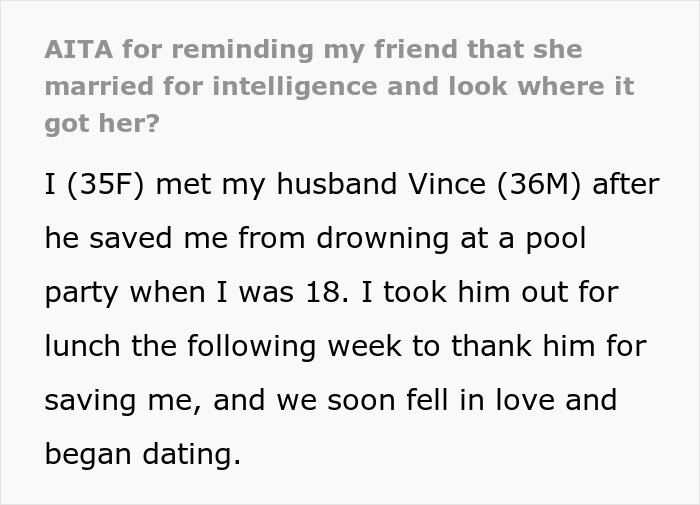
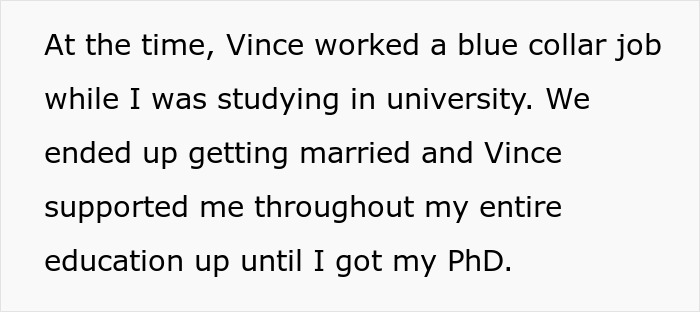
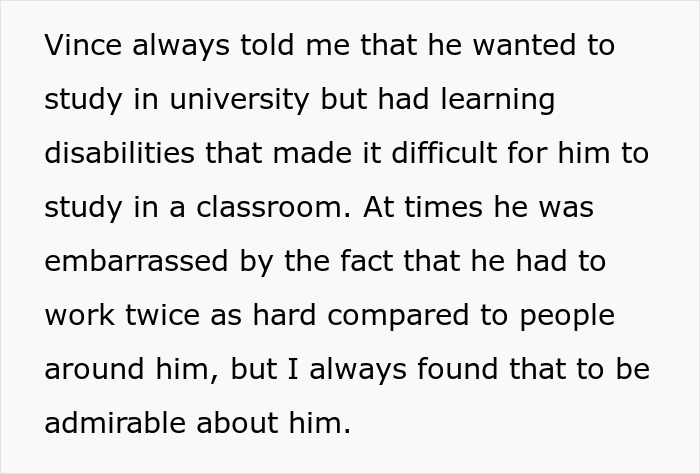

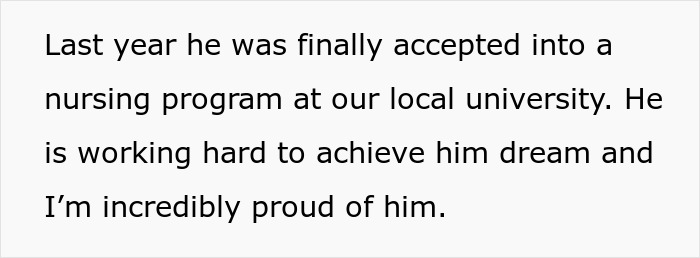

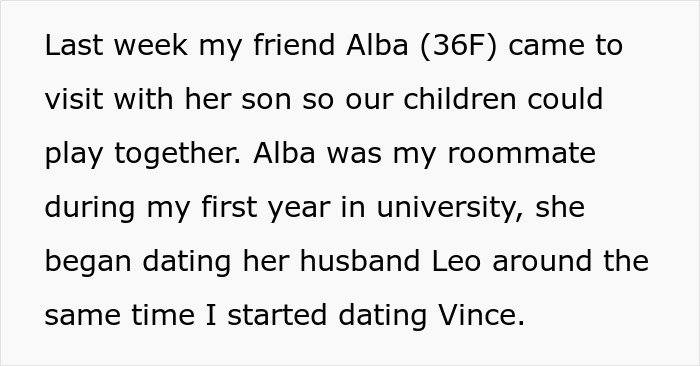
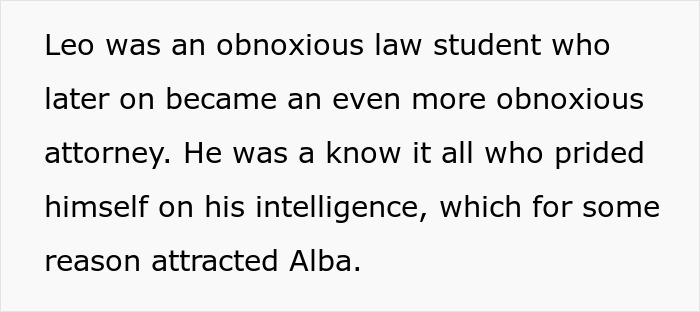
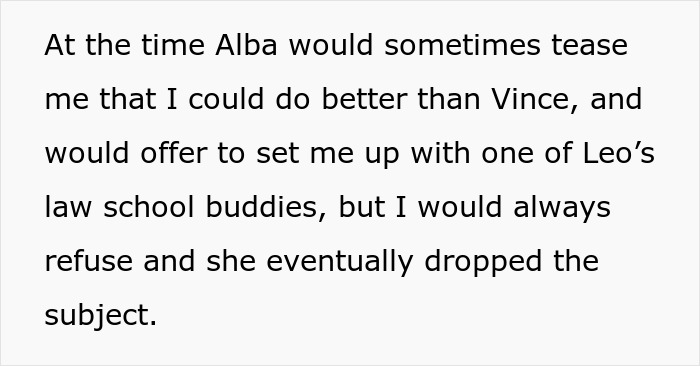
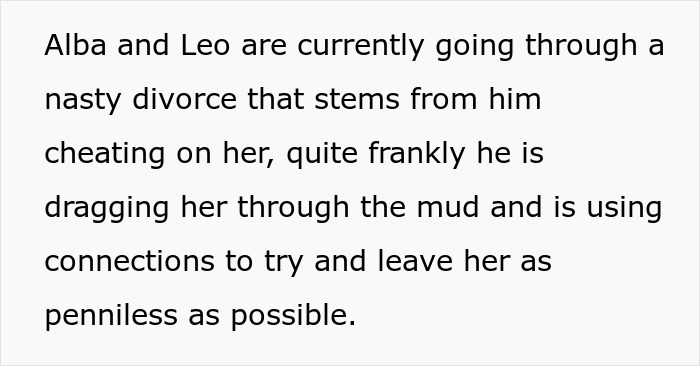
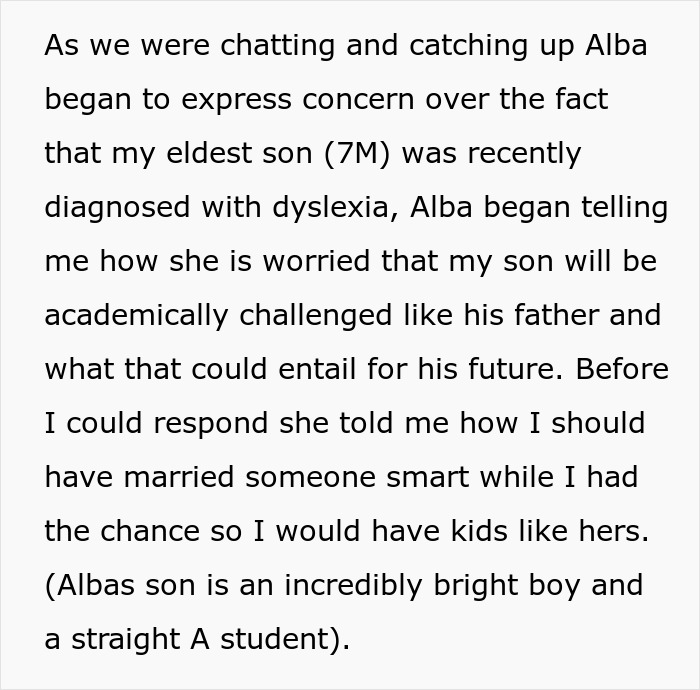
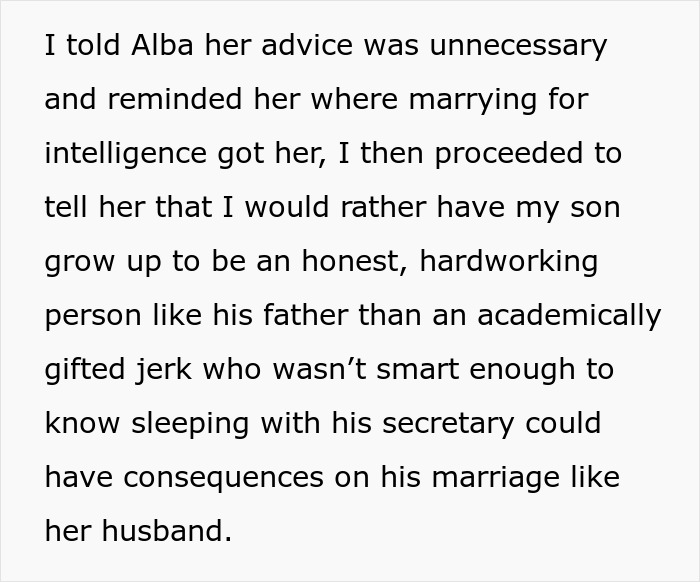


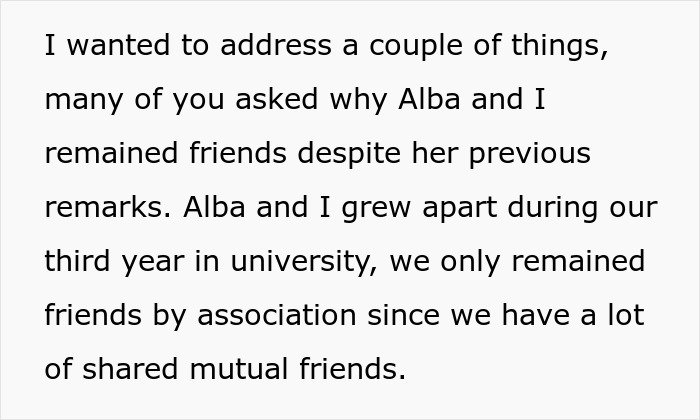
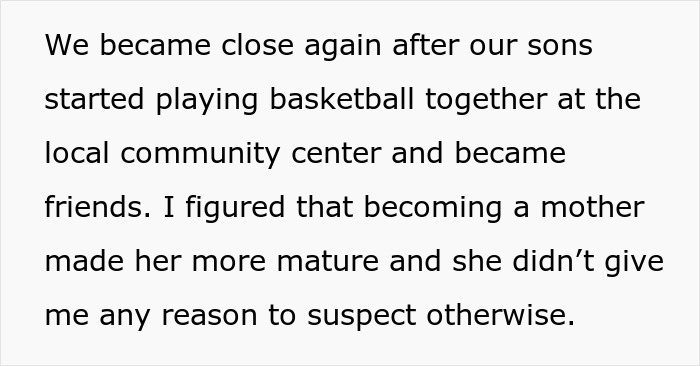
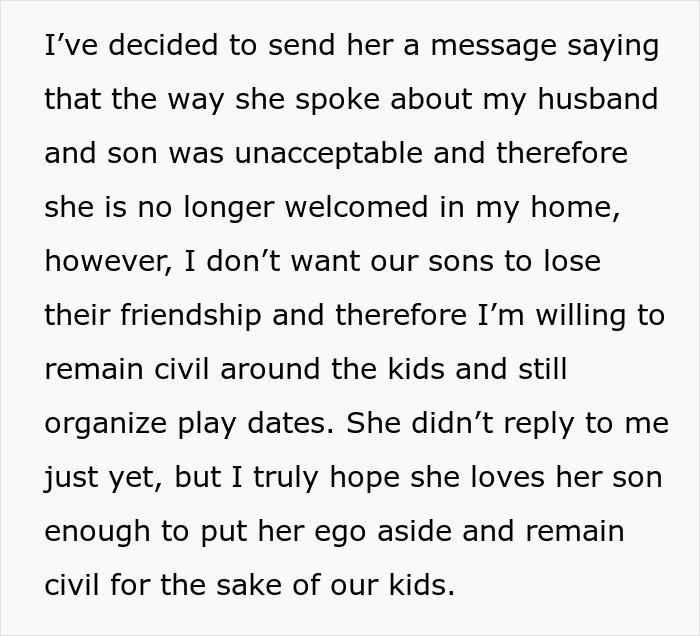






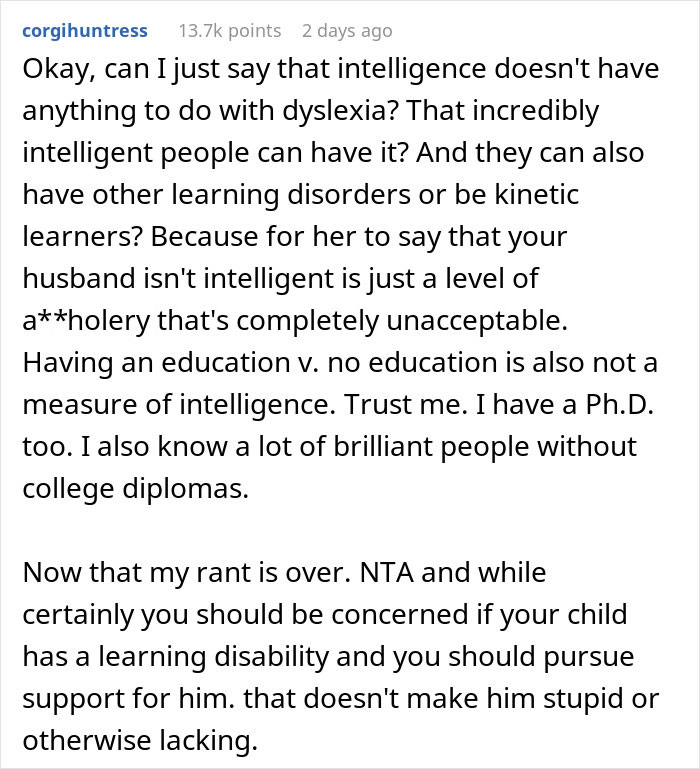
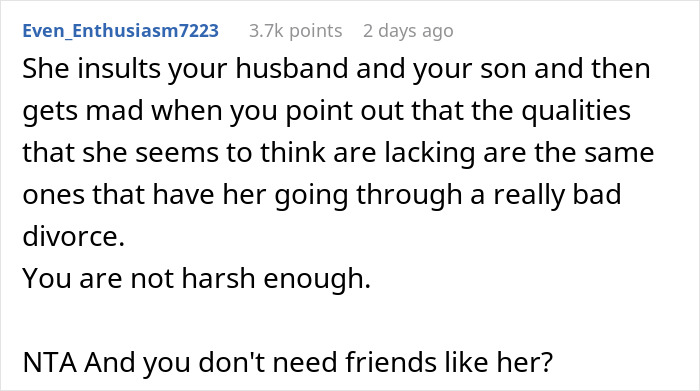

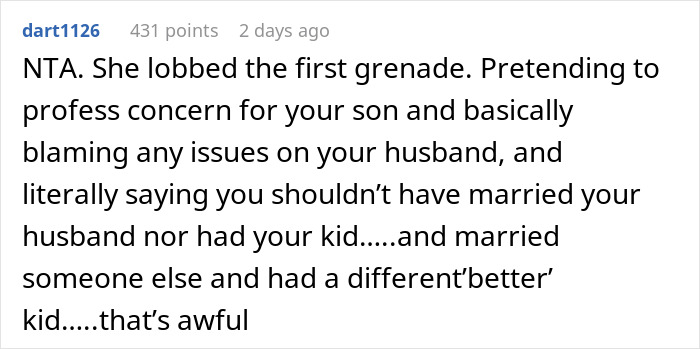



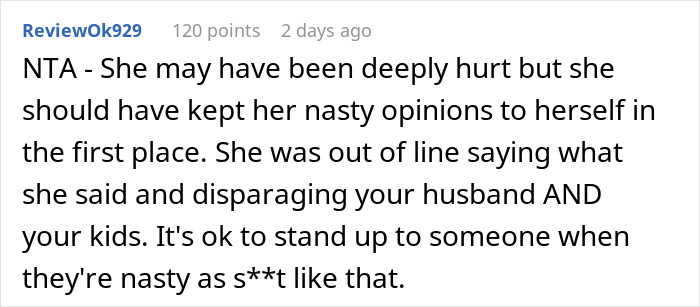
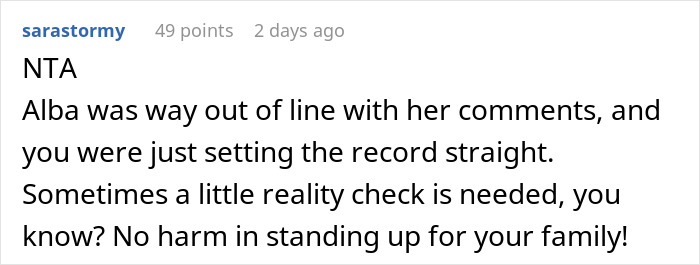





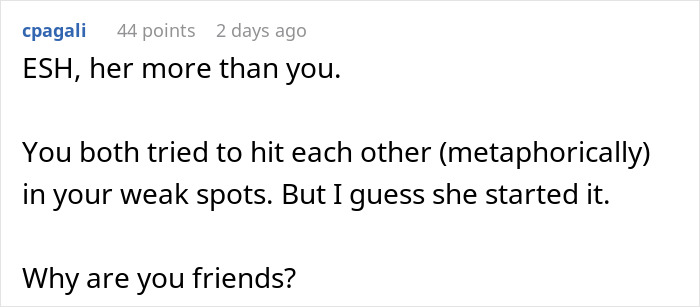
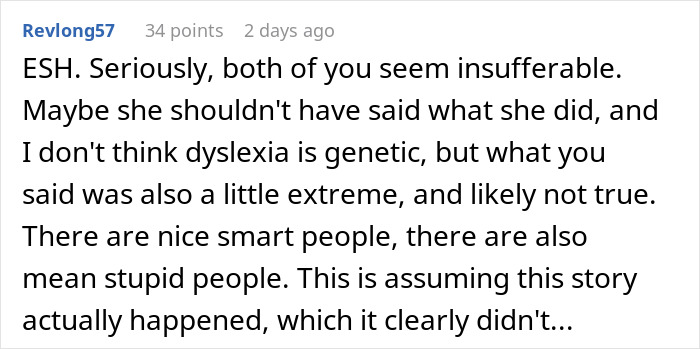
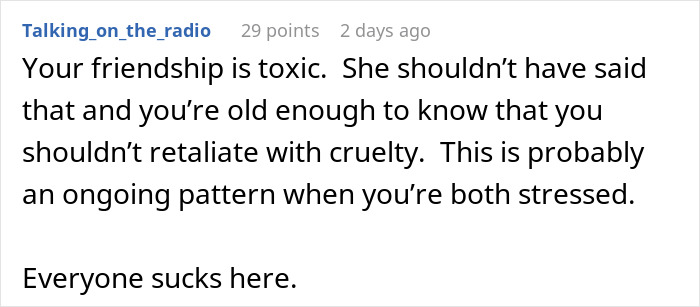
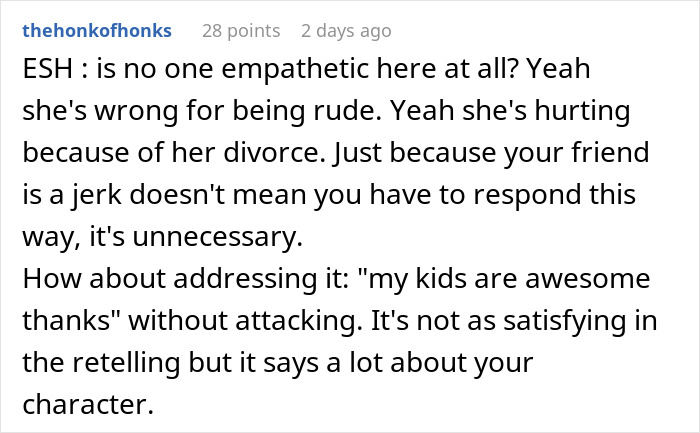











































40
48